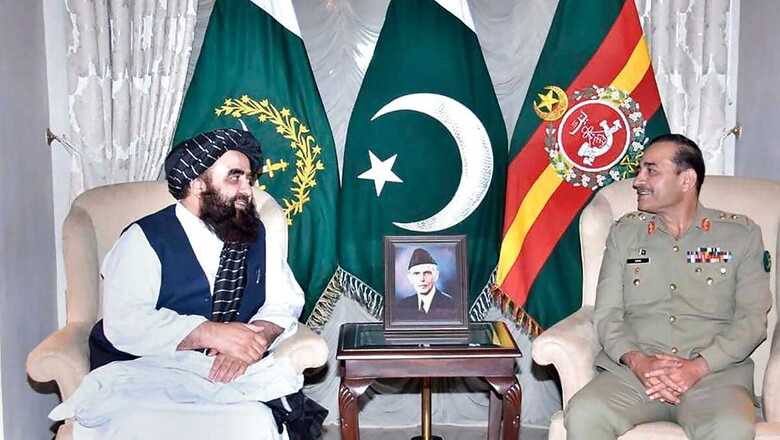
views
The Pakistani establishment has adopted a child-cry strategy after relatively losing its relevance on the Afghanistan front, said Amrullah Saleh in an exclusive conversation with CNN-News18. Afghanistan’s Acting President-in-Exile also said that Pakistan never talked about the refugee issue previously because it was benefiting from it.
“I have to explain the background. Pakistan opened its borders for Afghan refugees when it had a benefit in this. The benefit was securing a geopolitical alliance with the West and the Arab world in order to fight the Soviet-backed government of Afghanistan in the 1980s.” he said.
In those days, an Afghan could go to Pakistan without any documents, he pointed out. “Of course, they were causing some problems, but Pakistan kept silent because these refugees were a source of income. They were also giving Pakistan geopolitical relevance. So Pakistan never talked about the refugee issue. They did not set up any mechanism for registration,” Saleh said. “So the Afghans settled there in various ways. Then came the 90s. In the 90s also, Pakistan used these refugee camps as recruitment centres to destabilise Kabul, to use the refugees for insurgency purposes elsewhere.”
So the refugees were never an economic burden or a security trouble for Pakistan, he said. “Instead, they were an asset. But let’s also not forget, what is the definition of refugees. Many hundreds of thousands of Afghans have kinship relations in Pakistan. They are not necessarily refugees,” said Saleh. “Now as to why Pakistan has chosen this particular time for forceful eviction, let me give you some of the facts that we have learnt. Fact number 1 is, Pakistan always wanted a strategic depth in Afghanistan. And the definition of this strategic depth was empowerment and establishment of a pro-Pakistan group in Kabul with deep ties, ideological, economic, familial, societal ties with Pakistan…Trained in Pakistan, raised in Pakistan, speak in the language of Pakistan. That they have achieved.”
So Pakistan has a puppet group in the name of the Taliban in control of Afghanistan, Saleh said. “And the question is if this is the strategic depth that they have created, what is bothering them, and why have they chosen this particular time to expel the Afghans from Pakistan? I think, number 1, Pakistan, when it comes to the issue of Afghanistan, has relatively lost its relevance and importance because the engagement of the Western countries, which historically was always through Pakistan with Afghanistan, since the collapse of the republic, the West has shifted its diplomatic hub to Qatar and they have bypassed Pakistan. And that is bothering Pakistan, because Afghanistan was always one issue that was giving it relevance. So here we also see a child-cry strategy that the Pakistani establishment has adopted. They do things to attract attention,” he said.















Comments
0 comment